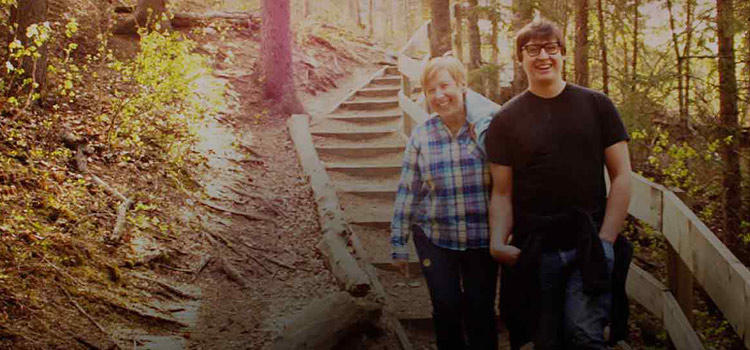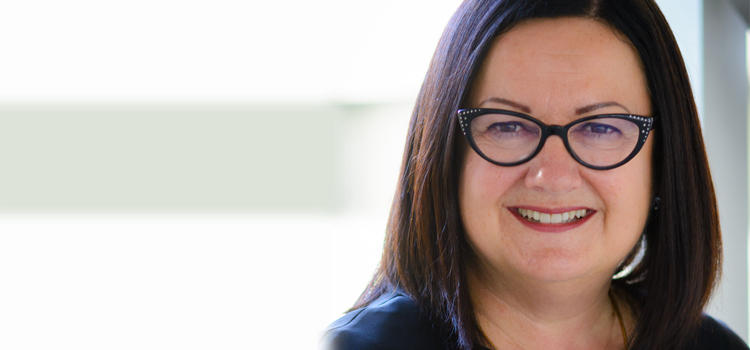Parents and grandparents with first-hand knowledge of childhood cancer have sage advice to offer from their experiences. While every family has its own particular challenges, there is still shared wisdom to be had.
Here, a few Alberta parents share observations from their own experiences that they hope will be heard by other families and front-line healthcare professionals.
Alison Campbell
Allison, 37 (above), lost her daughter, Madeline, to cancer, a brain tumor. Her marriage suffered, but the couple has rebounded and emerged strong. Campbell participated in University of Calgary psychosocial oncology expert Nancy Moules’ research on parents and childhood cancer.
- Parents, be honest with each other.
- Talk about your feelings and don’t ignore what the other person is feeling.
- Keep communications open.
- Make time for one another.
- Ask other people for help, even if it’s just to ask them to take one of your other children for a day. You have to ask because often other people just don’t know how to help you.
Judy Frank
Judy’s son, Matt, was admitted to Alberta Children’s Hospital with a pediatric brain tumor when he was 20 years old. The tumor had been growing since he was child. Matt, now 25, underwent surgeries and chemotherapy. He is a University of Calgary graduate and a registered nurse.
- Find a good doctor and trust the doctor.
- You are trying to be strong for your child and, at the same time, advocate for their care. This becomes a full-time job.
- There are things life throws at you. You do have a choice around how you accept them. For your child’s sake, you try and accept them in a way that is going to support them the most.
- You are trying to be an advocate for your child when they are just trying to maintain their positive outlook and strength. It can become very frustrating when you feel they are not getting the proper attention.
- There are times when you need to cry and times you need to cry with your child – it’s okay. Your goal is to make their journey easier.
- To me, a person’s ability to deal with cancer also depends on their ability to have a strong supporting network and family. Support for the parents means support for the patient – and helping their recovery.
Christine McIver
Christine is the Founder and CEO of Kids Cancer Care, a standout organization in Canada that offers cancer fundraising, kid’s camps, outreach, education support, scholarships and information resources.
Christine’s son, Derek, had a brain tumor and subsequently died. In the past 16 years, the organization has provided more than $12 million in research grants, establishment awards, infrastructure, equipment grants and more.
- Parents who are able to share their stories provide the opportunity for others to learn from them.
- Research offers parents hope. Saying yes to research and participating in research programs is one way parents can give back. It is through research that we learn to create programs for parents.


